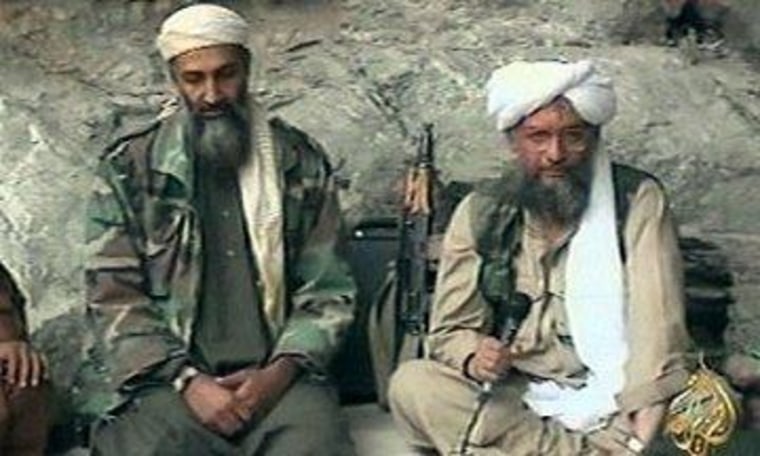Several months ago, when congressional Republicans decided to smear Susan Rice in advance of a possible Secretary of State nomination, one of the GOP talking points focused on Rice's claim that al Qaeda has been "decimated."
Appearing on Fox News in November, Sen. John McCain (R-Ariz.) complained, "Why did she say that, why did she say that al Qaeda has been 'decimated' in her statement here on this program? Al Qaeda hasn't been decimated. They're on the rise."
McCain has struggled for years when it comes to the details of national security policy, but this was an especially jarring claim. The terrorist network responsible for the 9/11 attacks isn't "on the rise"; it's falling apart.
Skilled in tracking foreign terrorists, Jarret Brachman once was a sought-after expert on Al Qaeda, advising several federal agencies and speaking regularly around the country.Now the former research director of the Combating Terrorism Center, a think tank at the U.S. Military Academy at West Point, has turned his focus away from Islamic militants. He spends most of his time consulting with federal, state and local law enforcement agencies about threats from domestic extremists and antigovernment militias."I have totally re-branded my career," Brachman said. "I still do the Al Qaeda stuff, but there's no interest, no demand.... We've broken Al Qaeda's back, strategically."
The Obama administration set out to dismantle the network, and it's succeeded in shattering al Qaeda, at least as it used to exist.
The progress has created new challenges, as al Qaeda splinters into autonomous factions, but the L.A. Times report noted that many analysts and former government officials say these isolated groups are largely focused on local concerns, not on the United States, and have little or no ability to organize a broader plot.
"To the best of our information, there is nobody out there with both the desire and the capabilities to cause any serious damage to the U.S. in any way at this moment," said Rosa Brooks, a former deputy assistant secretary of Defense.
I mention all of this for reasons that have nothing to do with making John McCain appear foolish. Rather, what matters here is the realization that the nation and its policymakers should come to terms -- sooner rather than later -- with what it means to end a so-called "war on terror."
If al Qaeda has effectively been eviscerated, and the evidence clearly points in that direction, and the greater threat is posed by loosely organized extremists, it reinforces a fact that has long been true -- preventing and combating terrorism is a function of intelligence gathering and law enforcement. In recent years, such an argument has been derided by conservatives as "weak" -- as if any counter-terrorism strategy that doesn't rely on the use of military force is necessarily wrongheaded -- but I'd like to think the debate has progressed to a more mature point.
"There's clear recognition, from the White House on down, that as we wind down these wars we need to address the hard question of what does a sustainable counter-terrorism policy look like for the next phase," said Shawn Brimley, who left the White House last year as director for strategic planning on the National Security Council.The new CIA director, John Brennan, has indicated he is eager to move his agency away from targeted killings and back to its core responsibilities, spying and espionage. One option under discussion at the White House is to transfer much of the CIA's drone fleet to the Pentagon.
There will, of course, be some institutional resistance to the transition, but I can only hope policymakers consider the perspective of former Defense Department General Counsel Jeh Johnson on this subject.
